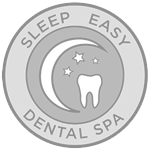
Even after decades of research, the exact reason why we sleep remains one of the most enduring and intriguing mysteries in health science. Experts continue to analyze the mechanisms of sleep and its profound impact on our overall health and well-being. Understanding the science behind sleep can lead to better health outcomes and significantly enhance your daily life.
In a previous blog post, we discussed the risks associated with untreated sleep apnea . In this blog, we will delve into the science of sleep, exploring how it impacts your health and well-being. Additionally, we will highlight the resources available to help you better understand and manage your sleep issues effectively.
The Importance of Sleep
Sleep is a vital process that allows our bodies to recover and rejuvenate. During sleep, our brains process information, our bodies heal, and we prepare for the challenges of the day ahead. Yet, many people in Hudson struggle with sleep-related issues that can affect their overall health. Check below why sleep is important for health
-
The Sleep Cycle
Understanding the sleep cycle is crucial to comprehending the sleep effect. Atypical sleep cycle consists of several stages, including light sleep, deep sleep, and REM (rapid eye movement) sleep. Each stage plays a vital role in physical health, cognitive function, and emotional regulation. Disruptions in these cycles can lead to issues such as insomnia, sleep apnea, and other sleep disorders.
-
Sleep and Physical Health
Lack of quality sleep can contribute to various physical health issues, including obesity, diabetes, cardiovascular diseases, and weakened immune function. When you consistently get insufficient sleep, your body struggles to regulate hormones that control hunger and metabolism, leading to weight gain and other health complications. Seeking guidance from a sleep dentist in Hudson can help address sleep-related issues, ensuring you receive the support needed for better health and well-being.
-
Sleep and Mental Health
The connection between sleep and mental health is profound. Sleep deprivation can exacerbate conditions such as anxiety and depression, while also impairing cognitive functions like memory and concentration. Prioritizing sleep can lead to improved emotional stability and better mental health outcomes.
-
Respiratory and Immune Systems
During sleep, your breathing becomes shallower and less frequent, resulting in lower oxygen intake. This can lead to complications for individuals with existing health conditions such as asthma or chronic obstructive pulmonary disease (COPD). For instance, asthma symptoms often intensify during the early morning hours, and those with COPD may experience worsening breathing difficulties at night.s
Sleep also plays a critical role in regulating various aspects of your immune system, which operates more actively at different times throughout the day. While you sleep, specific immune cells ramp up their activity, enhancing your body’s ability to fight off infections. Consequently, individuals who experience insufficient sleep are more susceptible to colds and other illnesses. For those struggling with sleep-related issues, consulting a sleep clinic in Hudson can provide valuable insights and treatment options to improve both sleep quality and overall health.
Conclusion:
Understanding the sleep effect in Hudson is crucial for maintaining optimal health and well-being. Quality sleep plays a vital role in various aspects of our physical and mental health, from immune function to weight regulation. If you’re experiencing sleep difficulties or have questions about your sleep health, don’t hesitate to reach out for professional help.
Contact Dr. Charles R. Verbanic at (330) 752-6226 to learn more about how our sleep clinic can support you in achieving better sleep and overall health.









